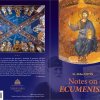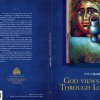Abba Justin’s manuscript legacy (on which Bishop Athanasius have been working for a couple of years preparing an edition of The Complete Works ), also includes a parcel of sheets/small sheets of paper (in the 1/4 A4 size) with the notes on Ecumenism (written in pencil and dating from the period when he was working on his book “The Orthodox Church and Ecumenism”; there are also references to the writings of St. Bishop Nikolai [Velimirovich], short excerpts copied from his Sermons, some of which were quoted in the book).
The editor presents the Notes authentically, as he has found them in the manuscripts (his words inserted in the text, as clarification, are put between the slashes /…/; all the footnotes are ours).—In the appendix are present the facsimiles of the majority of Abba’s Notes which were supposed to be included in his book On Ecumenism (written in haste then, but now significantly supplemented with these Notes. The Notes make evident the full extent of Justin’s profundity as a theologian and ecclesiologist of the authentic Orthodoxy).—The real Justin is present in these Notes: by his original language, style, literature, polemics, philosophy, theology, and above all by his confession of the God-man Christ and His Church. He confesses his faith, tradition, experience and his perspective on man, on the world and on Europe—invariably in the Church and from the Church, in the God-man Christ and from Him, just as he did in all of his writings and in his entire life and theologizing.





